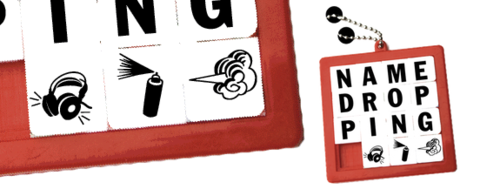
One of the more common missteps I see at networking events is a tendency to establish credibility by letting others know whom you know, rather than what you do. This name-dropping often sounds like, “So, you design handbags?” “Yes—you may have seen X celebrity carrying it in the recent issue of People. She’s such a good friend.” Or, “So, you’re a writer?” “I am. X, Y, and Z have all endorsed my books. We’ve known each other for years.”
The trouble with this follow up is that you’ve now moved the conversation away from how your business/product/service might improve the life of the person you’re speaking with; instead, they’re in a conversation about your Rolodex—a topic they’re unlikely to find as interesting.
How can you establish your credibility without putting others off—particularly if you do have significant connections? My suggestion would be to find a way to link the life of the person in question to the connection you know—so you might say, “Yes, I design handbags that are particularly popular with working mothers, as they have the capacity for both computers and kid paraphernalia. Do you have kids?” From there, it’s easy enough to work in your well-known chum who’s also a working mom.
In addition to overt name-dropping, I also caution my clients about having too many “best friends,” as there’s something equally disquieting about meeting someone who—no matter who you mention—responds by announcing they’ve been best friends with that person since they met in the paddling pool. My request is that youconcentrate instead on making the person with whom you’re speaking feel like they are the most important person in your life.
All of that said, are there times when it’s useful to do some name-dropping? Occasionally, yes. There are people you are reassured by knowing that you’ve had the experience of working for a name-brand firm; that you attended a big-10 school; that you count the local celebrity as a close friend. In every case, however, you will appear much cooler if you ‘bury the lead’ when talking about it—if you spend a bit of time asking the person you’re speaking with about him or herself first. There’s simply never any need for a sentence along the lines of “Last summer after I left Harvard, my BFF Ben Affleck and I were inseparable until I began my job at Goldman Sachs.”
Because all they are thinking at that point is, “Stop the bombing.”
Frances Cole Jones
